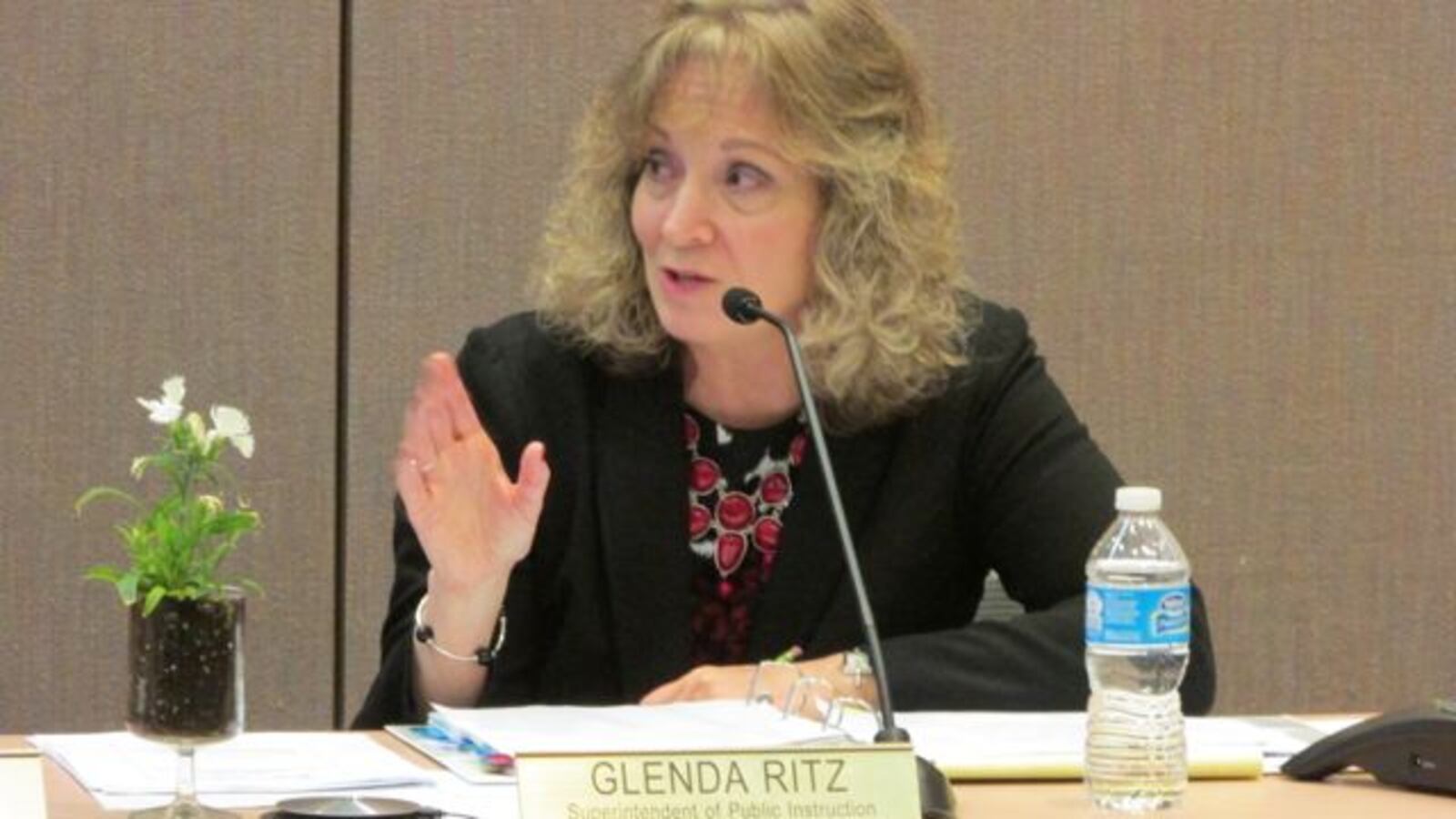State Superintendent Glenda Ritz said addressing teacher shortages will be a priority during next year’s legislative session.
“We’re developing a legislative agenda,” Ritz said Tuesday at an event for teacher leaders in Indianapolis. “We are going to be getting groups together to make sure we are always on the next steps: What it is we need to do and where it is that we’re headed.”
Ritz’s effort continues a conversation that began last year when some Indiana districts reported problems finding teachers and keeping them in the classroom, but despite many debates and a 49-member panel dedicated to finding solutions, legislators took little action, passing just two laws that aligned with the panel’s recommendations.
This week, her event featured college of education professors from Butler, Marian and Purdue universities and teachers from across the state, including 2006 Milken Educator Award-winner Marjorie Ramey.
Indiana educators who participated in the event offered a range of solutions. Among them:
Teachers need to talk more about teaching.
Angela Lupton, assistant dean for Butler University’s college of education, said one way to encourage more kids to become teachers is simply to talk about it with them.
“It’s amazing how looking someone in the eye … and saying, ‘I just want you to know you’re the person I want teaching next door to me in five years,’ (can be powerful) to a high school student,” Lupton said. “We’ve got to not only make teaching seem appealing but make it a privilege you are being invited into.”
Create more education classes and give them a competitive advantage.
The state needs to consider offering a dual credit class in teaching, Lupton said, which could serve as an incentive to students who are planning for college and careers.
Lupton mentioned one of her students had an opportunity to take a teaching class in high school — something only 36 percent of Indiana high schools even offer — but the girl eventually decided against it in favor of Advanced Placement and dual credit courses that give a bigger boost to a student’s GPA.
The state also needs expand what kinds of education classes it has on the books for high school students, she said.
“Most education courses are early childhood-focused or elementary-focused,” Lupton said. “Quite frankly, we need secondary teachers.”
Support local efforts to seek out diverse teachers.
David McGuire and Blake Nathan, two Indianapolis teachers, founded an organization called EducateME, which aims to recruit more black students — and black men in particular — to be teachers.
Read: A shortage everyone can agree on: Indianapolis schools don’t have enough black teachers
The two have developed a comprehensive program that spans high school, college and the first years of a teacher’s career. This year, their goal is to get more than 400 people involved: 25 high school “cadets” who learn about teaching through an after school program and time spent paired with elementary schools; 20 college “ambassadors” to help recruit at universities in and out of state; 200 teaching fellows; and 200 mentor teachers to guide them.
It’s ambitious, but McGuire and Nathan have already had successful college tours for high school students and interest from prospective out-of-state teachers. The more students can see teachers who look like them in schools, the better they’ll do, McGuire said. It’s a win-win situation for kids and for the community as a whole.
“The people who led the community (where I grew up), who were stalwarts of the community were the preachers and the teachers,” McGuire said. “You saw when there became a lack of black teachers.”
Learn more about Ritz’s priorities around teachers and her legislative agenda here.


